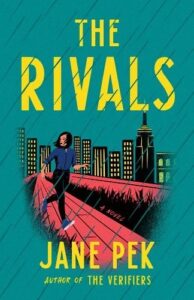When I meet someone new at a party, What do you do? usually floats into the conversation at some point. The question is, on its face, eminently open to interpretation; the responses, however, on the part of both myself and my conversation partner, invariably relate to work. (Maybe I just go to the wrong types of parties.)
In part, it’s the sheer amount of time we spend at our jobs. Assuming a 40-hour workweek as a baseline, work is what we do more frequently than pretty much any other activity, including potentially sleep. How much we work is in turn a function of various factors. For some, it’s out of economic necessity, which opens up a whole other discussion about wages and the cost of living and how labour should be valued. For others, it’s due to social expectations and norms around the role of work in our lives. Often, our job is more than a paycheck. It can give us a sense of purpose, structure to our days, some measure of satisfaction. It forms an important part of how we think of ourselves, as an engineer or a doctor or an urban planner—and thus here we are at parties, talking about our jobs.
My novel The Rivals is about a company that helps perennially online New Yorkers figure out if the people they swipe right on are telling the truth—in newest joiner Claudia Lin’s view, an online-dating detective agency, even if no one else who works there uses any of those words. (Her former boss once told her to think of Veracity as a personal investments advisory firm.) Veracity also monitors the powerful dating platforms that their clients rely on to find love, which have proven ready to resort to deception—and worse—in their bid for the ultimate prize in the matching industry: the ability to predict compatibility.
While I didn’t set out to write a workplace novel, The Rivals turned out to be a story that is very much about work. (Neither did I set out to write a mystery novel, which is a separate topic.) Claudia and her co-workers, Becks and Squirrel, compile diligence reports and undertake observations of their targets, as they refer to the people they are hired to verify. They infiltrate the matchmaker which they suspect of misusing its subscribers’ personal data for nefarious purposes, and also of murdering someone who unwittingly uncovered that secret. They argue over verifying methods and strategies for dealing with the matchmakers. Even when Claudia isn’t at work, she’s thinking about it: what the relationship between a client and the woman he’s dating is really like, if she can trust her informant, how she can find out more about the matchmakers’ plans.
In one sense, that’s simply reflective of real life and how much time we spend working. But the centering of work in the narrative is also a fundamental trait of detective fiction. At its inquisitive, industrious heart, the detective novel celebrates work—in all the ways that have come under scrutiny today.
Saying that COVID disrupted our work status quo might be like saying that people have been known to dress up for Halloween. It put one set of people out of work, required another set of people to continue working despite elevated health risks to themselves and their families, and erased work/non-work boundaries for a third set of people. It also, as global pandemics tend to, created conditions conducive for existential contemplation. Out of that came the Great Resignation, China’s tang ping movement and its corollary of quiet-quitting in the States, mainstream awareness of what the acronym FIRE stands for, and a slew of books and articles questioning the primacy of work in our lives and our identities.
In the world of the fictional detective, meanwhile, work is everything. A crime, typically a murder, is committed, and the detective has to solve it. That’s the whole point of the story: to show how someone who’s good at their job carries out a difficult assignment. The stakes are legitimately high—in contrast to many projects in our own non-fictional workplaces, regardless of what the boss or the client might say. Further danger must be averted, any injustice redressed, victims’ loved ones provided with some measure of solace, social order restored. Perhaps that’s why the detectives we read about don’t just do their job, they are deeply invested in it. Their work is essential to their identity, how they live, the idea of who they are. (With less fully fleshed out protagonists, it can feel like that’s all they are.).
Laurie King’s Kate Martinelli series, a police procedural set in 1990s and early-2000s San Francisco, is an excellent example of both workplace fiction and the workaholic detective. The first book A Grave Talent opens with the eponymous Kate being assigned to a high-profile serial killer case alongside a more senior detective, Al Hawkin, who doesn’t want to be saddled with her. It’s a work situation many of us have experienced, from either angle—fortunately for Kate, she’ll win Al over because she’s smart and competent and dedicated and overall worthy of being the protagonist of a series.
An awareness of issues of gender and sexual orientation in the workplace runs through the books, which were written during the time period that they take place. Al’s initial objection to Kate is largely premised on her being a younger woman; subsequently, he’s relieved that she’s “not his type”, so it doesn’t make working together too distracting. The fact that Kate is a lesbian, in a long-term relationship, is also addressed in terms of work—she’s adamantly closeted, because she believes that being out in any way would make it too difficult for her to be a cop, despite the seismic strain it places on her relationship with her domestic partner Lee. At one point in A Grave Talent, Lee has to accept that if she forced Kate to choose, Kate would choose her job.
Understanding the detective novel as a workplace novel also provides a possible reason for the increasing diversity in the ranks of our fictional detectives. As previously disenfranchised groups—women, ethnic minorities, openly queer individuals—have not only entered the workforce but taken on jobs in fields they were underrepresented in, we have seen a similar expansion within detective fiction, a broadening of possibilities for the types of characters who previously would never have gotten to play detective. In addition to Kate Martinelli, Sue Grafton’s Kinsey Millhone and Laura Lippman’s Tess Monaghan are accomplished female investigators who emerged in the later part of the twentieth century; and contemporary mystery fiction is rife with protagonists who look nothing like the forebears of the genre, even if they may draw inspiration from them. The Pentecost and Parker series by Stephen Spotswood and the Mossa and Pleiti series by Malka Older, for instance, are both queer, gender-swapped takes on classic sleuthing duos (Nero Wolfe and Archie Goodwin, in one case, and Sherlock Holmes and John Watson, in the other).
In The Investigations of Mossa and Pleiti, the delightful space-opera cosy-mystery series by Malka Older, Mossa is a capital-i Investigator, an independent police agent, and Pleiti is an academic studying Earth’s ruined ecosystem and its possible reconstruction. They are both women, and have a complicated romantic relationship that adds depth and poignancy to their investigative dynamic.
The Mossa and Pleiti books are deeply about work, the act and process of it, the significance it has for the characters and the world they live in. As a detective in the Holmesian tradition, Mossa is brilliantly logical and relentlessly focused, hellbent on unraveling whatever mystery is at hand. But Pleiti, as well, is someone whose life revolves around her work. She loves what she does and believes in the importance of her research, even if she comes to question the direction of her scholarship. Each book in the series (so far) is structured as a case that Mossa is investigating, but there is more on-the-page discussion of what Pleiti’s work involves, the different ideas that she and her colleagues are pursuing, and why they matter. The thoughtfulness with which Older treats Pleiti’s work—notwithstanding the fun she has with politics in academia, because low-hanging fruit—underscores the respect for and value accorded to work in detective fiction.
A large part of our current cultural discontent with work, I think, is that it can’t be everything that we wish for. It’s incalculably rare to have an occupation that affords us existential purpose, meaningful accomplishment and satisfaction, and financial comfort. Not shifting our mindset about what work should be for us can lead to disappointment; at the same time, accepting a diminished conception of work in our lives and our identities will create resentment about how we’re frequently expected or required to devote the best parts of ourselves—time, effort, attention—to our jobs. Where does that leave us? Escaping into detective novels, perhaps, which despite their inherent murkiness (of facts and, at times, of morality) also contain an enviable clarity. Forget work-life balance, tasks of questionable import, arbitrary deadlines. This case needs to be solved now: let’s go.
***


















